Review:
Babel, by R.F. Kuang
| Publisher: |
Harper Voyage |
| Copyright: |
August 2022 |
| ISBN: |
0-06-302144-7 |
| Format: |
Kindle |
| Pages: |
544 |
Babel, or the Necessity of Violence: An Arcane History of the Oxford
Translators' Revolution, to give it its full title, is a standalone
dark academia fantasy
set in the 1830s and 1840s, primarily in Oxford, England. The first book
of R.F. Kuang's previous trilogy,
The Poppy War, was nominated for
multiple awards and won the Compton Crook Award for best first novel.
Babel is her fourth book.
Robin Swift, although that was not his name at the time, was born and
raised in Canton and educated by an inexplicable English tutor his family
could not have afforded. After his entire family dies of cholera, he is
plucked from China by a British professor and offered a life in England as
his ward. What follows is a paradise of books, a hell of relentless and
demanding instruction, and an unpredictably abusive emotional environment,
all aiming him towards admission to Oxford University. Robin will join
University College and the Royal Institute of Translation.
The politics of this imperial Britain are almost precisely the same as in
our history, but one of the engines is profoundly different. This world
has magic. If words from two different languages are engraved on a metal
bar (silver is best), the meaning and nuance lost in translation becomes
magical power. With a careful choice of translation pairs, and sometimes
additional help from other related words and techniques, the silver bar
becomes a persistent spell. Britain's industrial revolution is in
overdrive thanks to the country's vast stores of silver and the applied
translation prowess of Babel.
This means Babel is also the only part of very racist Oxford that accepts
non-white students and women. They need translators (barely) more than
they care about maintaining social hierarchy; translation pairs only work
when the translator is fluent in both languages. The magic is also
stronger when meanings are more distinct, which is creating serious
worries about classical and European languages. Those are still the bulk
of Babel's work, but increased trade and communication within Europe is
eroding the meaning distinctions and thus the amount of magical power.
More remote languages, such as Chinese and Urdu, are full of untapped
promise that Britain's colonial empire wants to capture. Professor
Lowell, Robin's dubious benefactor, is a specialist in Chinese languages;
Robin is a potential tool for his plans.
As Robin discovers shortly after arriving in Oxford, he is not the first
of Lowell's tools. His predecessor turned against Babel and is trying to
break its chokehold on translation magic. He wants Robin to help.
This is one of those books that is hard to review because it does some
things exceptionally well and other things that did not work for me. It's
not obvious if the latter are flaws in the book or a mismatch between book
and reader (or, frankly, flaws in the reader). I'll try to explain as
best I can so that you can draw your own conclusions.
First, this is one of the all-time great magical system hooks. The way
words are tapped for power is fully fleshed out and exceptionally
well-done. Kuang is a professional translator, which shows in the
attention to detail on translation pairs. I think this is the
best-constructed and explained word-based magic system I've read in
fantasy. Many word-based systems treat magic as its own separate language
that is weirdly universal. Here, Kuang does the exact opposite, and the
result is immensely satisfying.
A fantasy reader may expect exploration of this magic system to be the
primary point of the book, however, and this is not the case. It is an
important part of the book, and its implications are essential to the plot
resolution, but this is not the type of fantasy novel where the plot is
driven by character exploration of the magic system. The magic system
exists, the characters use it, and we do get some crunchy details, but the
heart of the book is elsewhere. If you were expecting the typical
relationship of a fantasy novel to its magic system, you may get a bit
wrong-footed.
Similarly, this is historical fantasy, but it is the type of historical
fantasy where the existence of magic causes no significant differences.
For some people, this is a pet peeve; personally, I don't mind that choice
in the abstract, but some of the specifics bugged me.
The villains of this book assert that any country could have done what
Britain did in developing translation magic, and thus their hoarding of it
is not immoral. They are obviously partly lying (this is a classic
justification for imperialism), but it's not clear from the book how they
are lying. Technologies (and magic here works like a technology) tend to
concentrate power when they require significant capital investment, and
tend to dilute power when they are portable and easy to teach.
Translation magic feels like the latter, but its effect in the book is
clearly the former, and I was never sure why.
England is not an obvious choice to be a translation superpower. Yes,
it's a colonial empire, but India, southeast Asia, and most certainly
Africa (the continent largely not appearing in this book) are home to
considerably more languages from more wildly disparate families than
western Europe. Translation is not a peculiarly European idea, and this
magic system does not seem hard to stumble across. It's not clear why
England, and Oxford in particular, is so dramatically far ahead. There is
some sign that Babel is keeping the mechanics of translation magic secret,
but that secret has leaked, seems easy to develop independently, and is
simple enough that a new student can perform basic magic with a few hours
of instruction. This does not feel like the kind of power that would be
easy to concentrate, let alone to the extreme extent required by the last
quarter of this book.
The demand for silver as a base material for translation magic provides a
justification for mercantilism that avoids the confusing complexities of
currency economics in our actual history, so fine, I guess, but it was a
bit disappointing for this great of an idea for a magic system to have
this small of an impact on politics.
I'll come to the actual thrust of this book in a moment, but first
something else
Babel does exceptionally well: dark academia.
The remainder of Robin's cohort at Oxford is Remy, a dark-skinned Muslim
from Calcutta; Victoire, a Haitian woman raised in France; and Letty, the
daughter of a British admiral. All of them are non-white except Letty,
and Letty and Victoire additionally have to deal with the blatant sexism
of the time. (For example, they have to live several miles from Oxford
because women living near the college would be a "distraction.")
The interpersonal dynamics between the four are exceptionally well done.
Kuang captures the dislocation of going away to college, the unsettled
life upheaval that makes it both easy and vital to form suddenly tight
friendships, and the way that the immense pressure from classes and exams
leaves one so devoid of spare emotional capacity that those friendships
become both unbreakable and badly strained. Robin and Remy almost
immediately become inseparable in that type of college friendship in which
profound trust and constant companionship happen first and learning about
the other person happens afterwards.
It's tricky to talk about this without spoilers, but one of the things
Kuang sets up with this friend group is a pointed look at
intersectionality.
Babel has gotten a lot of positive review buzz,
and I think this is one of the reasons why. Kuang does not pass over or
make excuses for characters in a place where many other books do. This
mostly worked for me, but with a substantial caveat that I think you may
want to be aware of before you dive into this book.
Babel is set in the 1830s, but it is very much about the politics
of 2022. That does not necessarily mean that the politics are off for the
1830s; I haven't done the research to know, and it's possible I'm seeing
the Tiffany problem (Jo Walton's observation that Tiffany is a historical
12th century women's name, but an author can't use it as a medieval name
because readers think it sounds too modern). But I found it hard to shake
the feeling that the characters make sense of their world using modern
analytical frameworks of imperialism, racism, sexism, and intersectional
feminism, although without using modern terminology, and characters from
the 1830s would react somewhat differently. This is a valid authorial
choice; all books are written for the readers of the time when they're
published. But as with magical systems that don't change history, it's a
pet peeve for some readers. If that's you, be aware that's the feel I got
from it.
The true center of this book is not the magic system or the history. It's
advertised directly in the title the necessity of violence although
it's not until well into the book before the reader knows what that means.
This is a book about revolution, what revolution means, what decisions you
have to make along the way, how the personal affects the political, and
the inadequacy of reform politics. It is hard, uncomfortable, and not
gentle on its characters.
The last quarter of this book was exceptional, and I understand why it's
getting so much attention. Kuang directly confronts the desire for
someone else to do the necessary work, the hope that surely the people
with power will see reason, and the feeling of despair when there are no
good plans and every reason to wait and do nothing when atrocities are
about to happen. If you are familiar with radical politics, these aren't
new questions, but this is not the sort of thing that normally shows up in
fantasy. It does not surprise me that
Babel struck a nerve with
readers a generation or two younger than me. It captures that heady
feeling on the cusp of adulthood when everything is in flux and one is
assembling an independent politics for the first time. Once I neared the
end of the book, I could not put it down. The ending is brutal, but I
think it was the right ending for this book.
There are two things, though, that I did not like about the political arc.
The first is that Victoire is a much more interesting character than
Robin, but is sidelined for most of the book. The difference of
perspectives between her and Robin is the heart of what makes the end of
this book so good, and I wish that had started 300 pages earlier. Or,
even better, I wish Victoire has been the protagonist; I liked Robin, but
he's a very predictable character for most of the book. Victoire is not;
even the conflicts she had earlier in the book, when she didn't get much
attention in the story, felt more dynamic and more thoughtful than Robin's
mix of guilt and anxiety.
The second is that I wish Kuang had shown more of Robin's intellectual
evolution. All of the pieces of why he makes the decisions that he does
are present in this book, and Kuang shows his emotional state (sometimes
in agonizing detail) at each step, but the sense-making, the development
of theory and ideology beneath the actions, is hinted at but not shown.
This is a stylistic choice with no one right answer, but it felt odd
because so much of the rest of the plot is obvious and telegraphed. If
the reader shares Robin's perspective, I think it's easy to fill in the
gaps, but it felt odd to read Robin giving clearly thought-out political
analyses at the end of the book without seeing the hashing-out and
argument with friends required to develop those analyses. I felt like I
had to do a lot of heavy lifting as the reader, work that I wish had been
done directly by the book.
My final note about this book is that I found much of it extremely
predictable. I think that's part of why reviewers describe it as
accessible and easy to read; accessibility and predictability can be two
sides of the same coin. Kuang did not intend for this book to be subtle,
and I think that's part of the appeal. But very few of Robin's actions
for the first three-quarters of the book surprised me, and that's not
always the reading experience I want. The end of the book is different,
and I therefore found it much more gripping, but it takes a while to get
there.
Babel is, for better or worse, the type of fantasy where the
politics, economics, and magic system exist primarily to justify the plot
the author wanted. I don't think the societal position of the Institute
of Translation that makes the ending possible is that believable given the
nature of the technology in question and the politics of the time, and if
you are inclined to dig into the specifics of the world-building, I think
you will find it frustrating. Where it succeeds brilliantly is in
capturing the social dynamics of hothouse academic cohorts, and in making
a sharp and unfortunately timely argument about the role of violence in
political change, in a way that the traditionally conservative setting of
fantasy rarely does.
I can't say
Babel blew me away, but I can see why others liked it
so much. If I had to guess, I'd say that the closer one is in age to the
characters in the book and to that moment of political identity
construction, the more it's likely to appeal.
Rating: 7 out of 10

 Like each month, have a look at the work funded by
Like each month, have a look at the work funded by 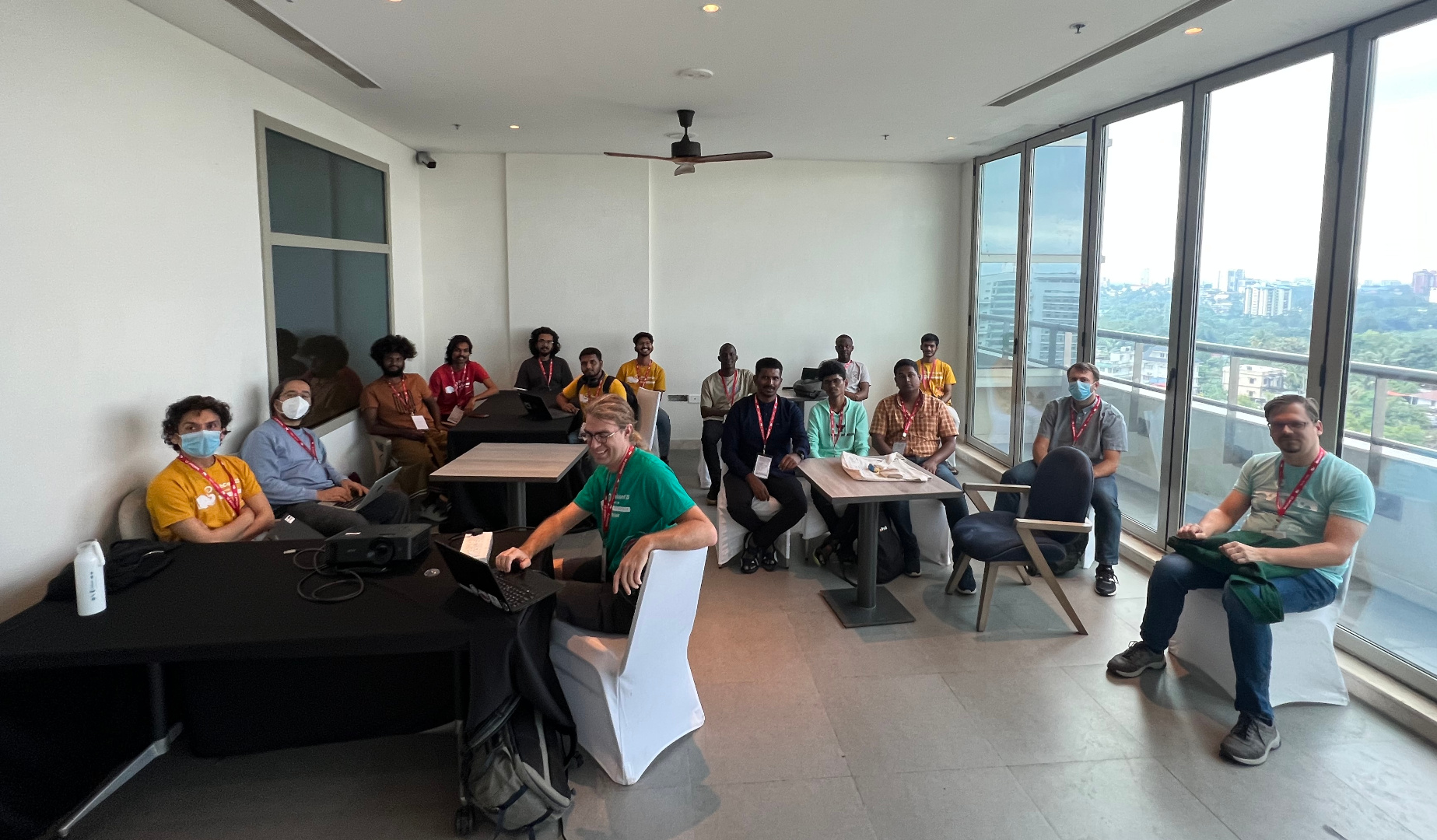
 Em 2023 o tradicional
Em 2023 o tradicional 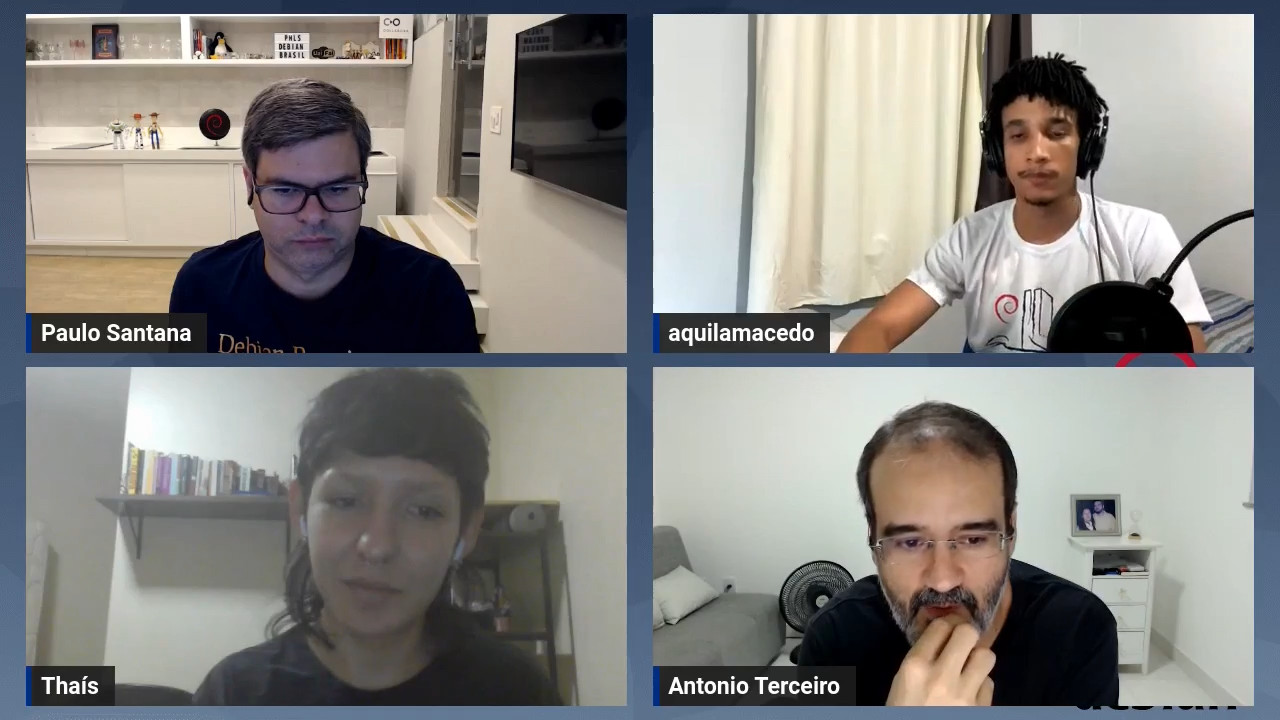
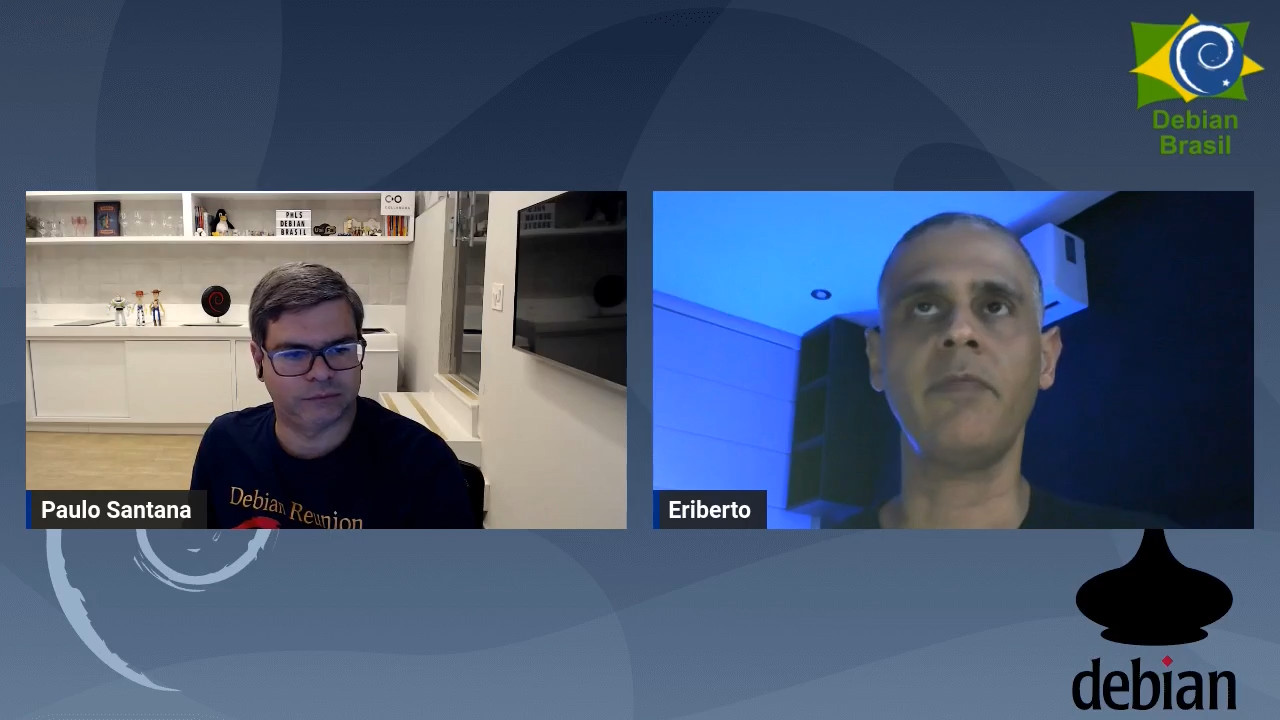
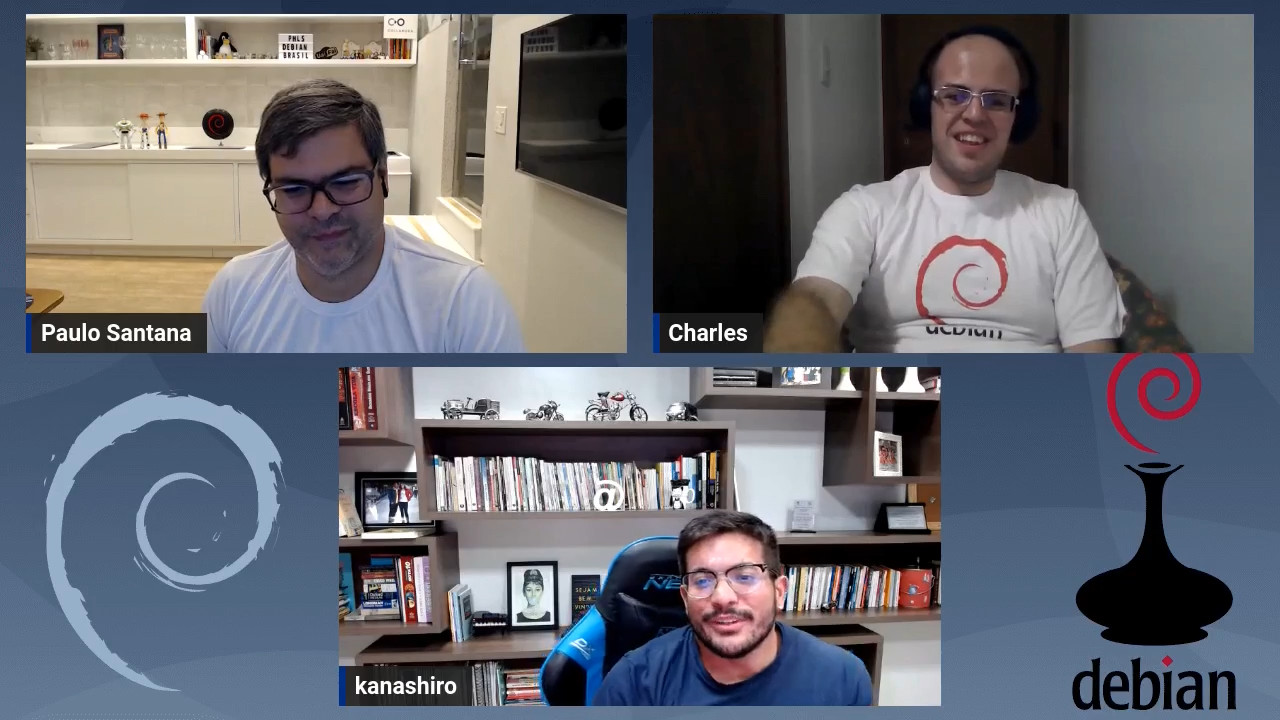
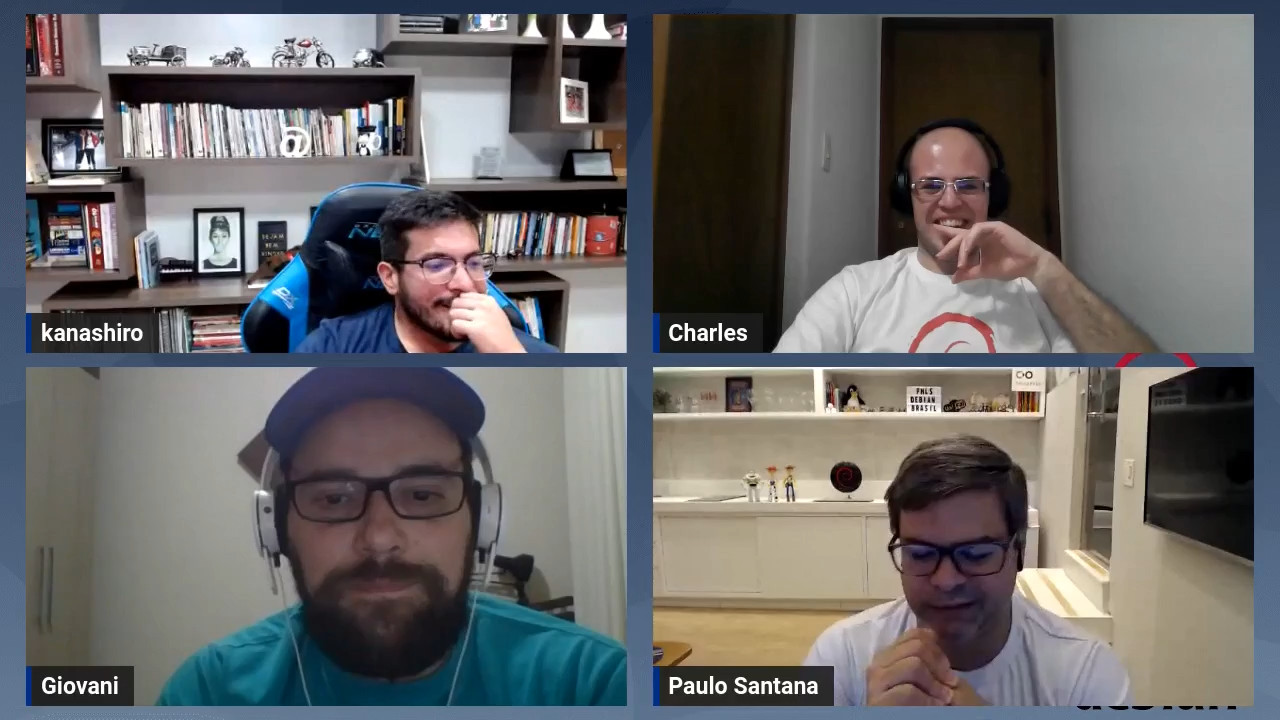

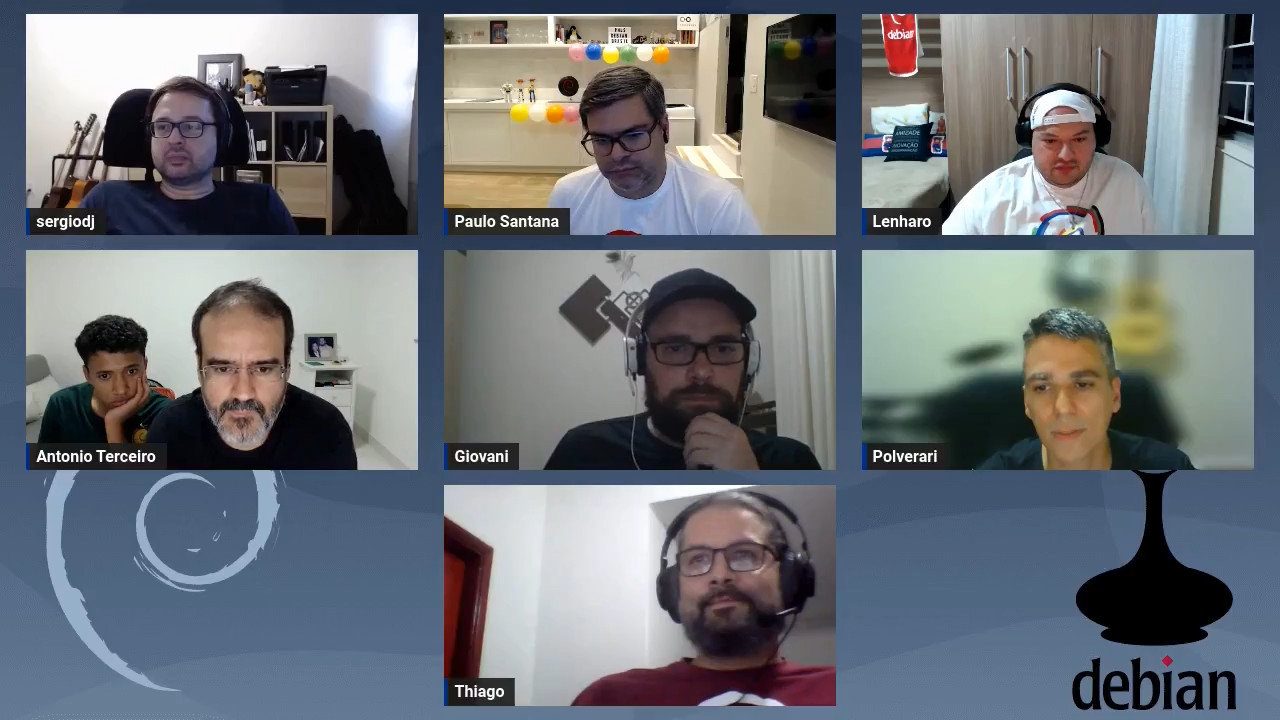
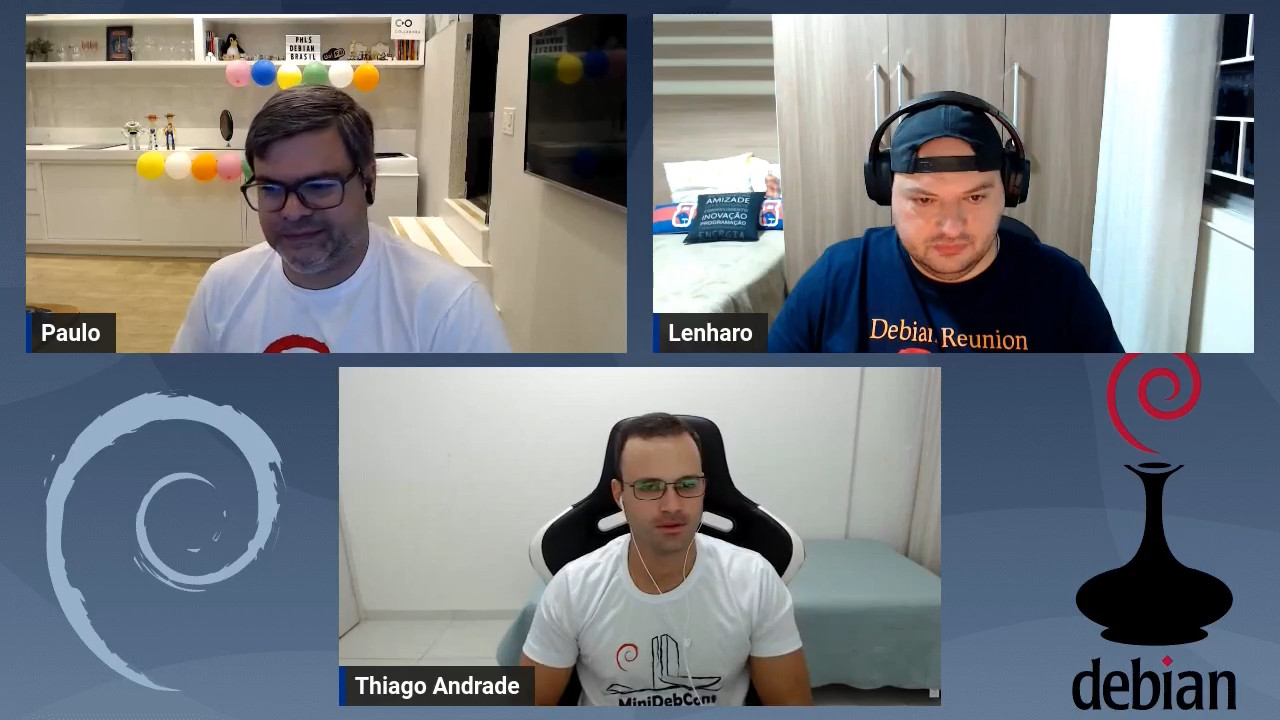
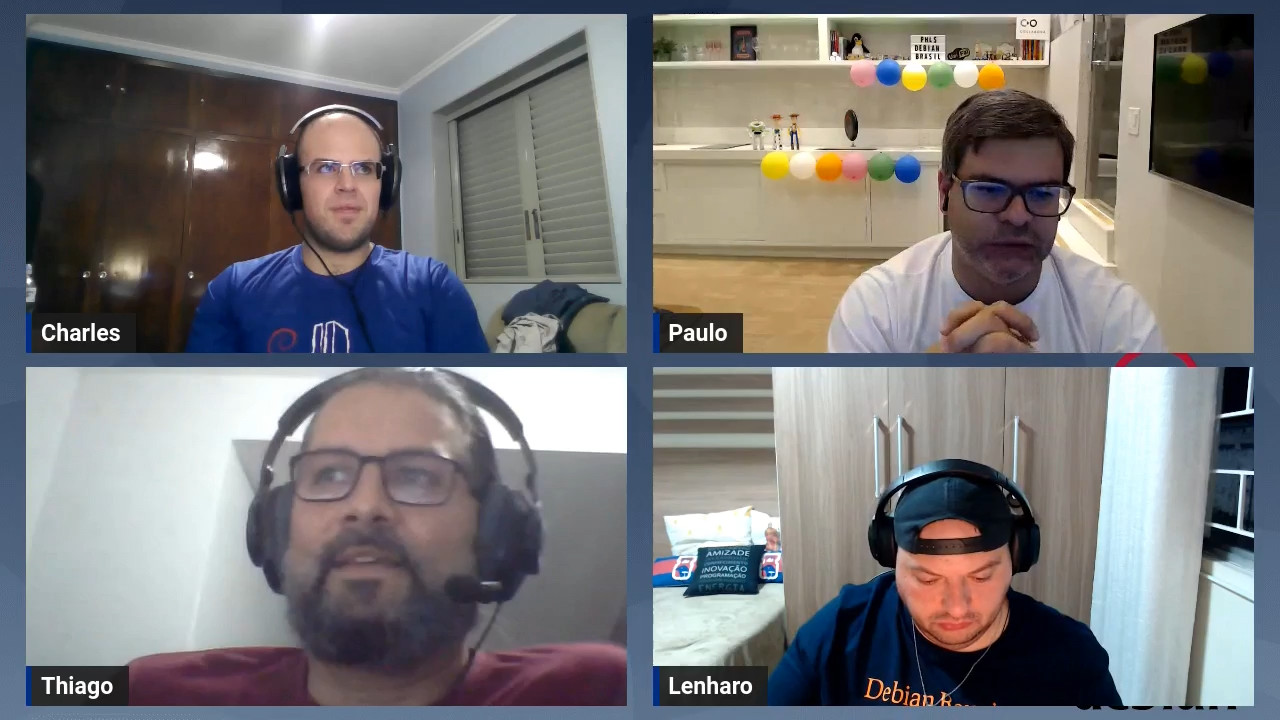
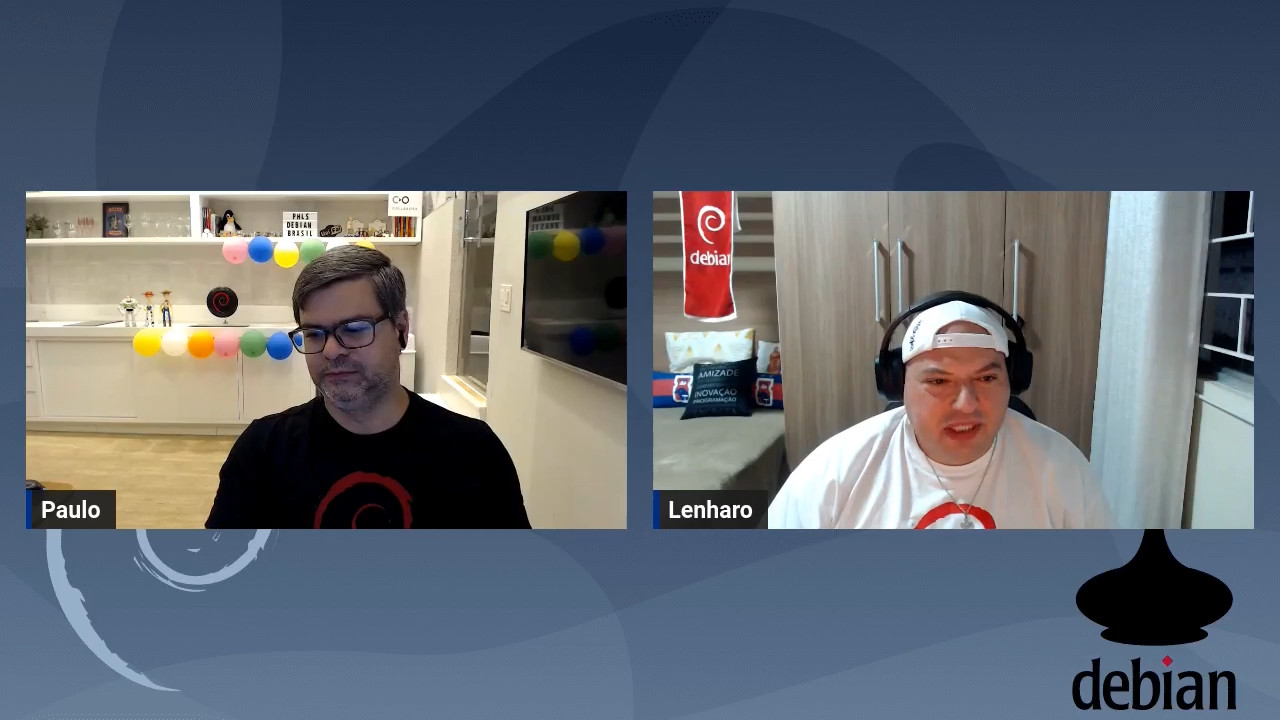
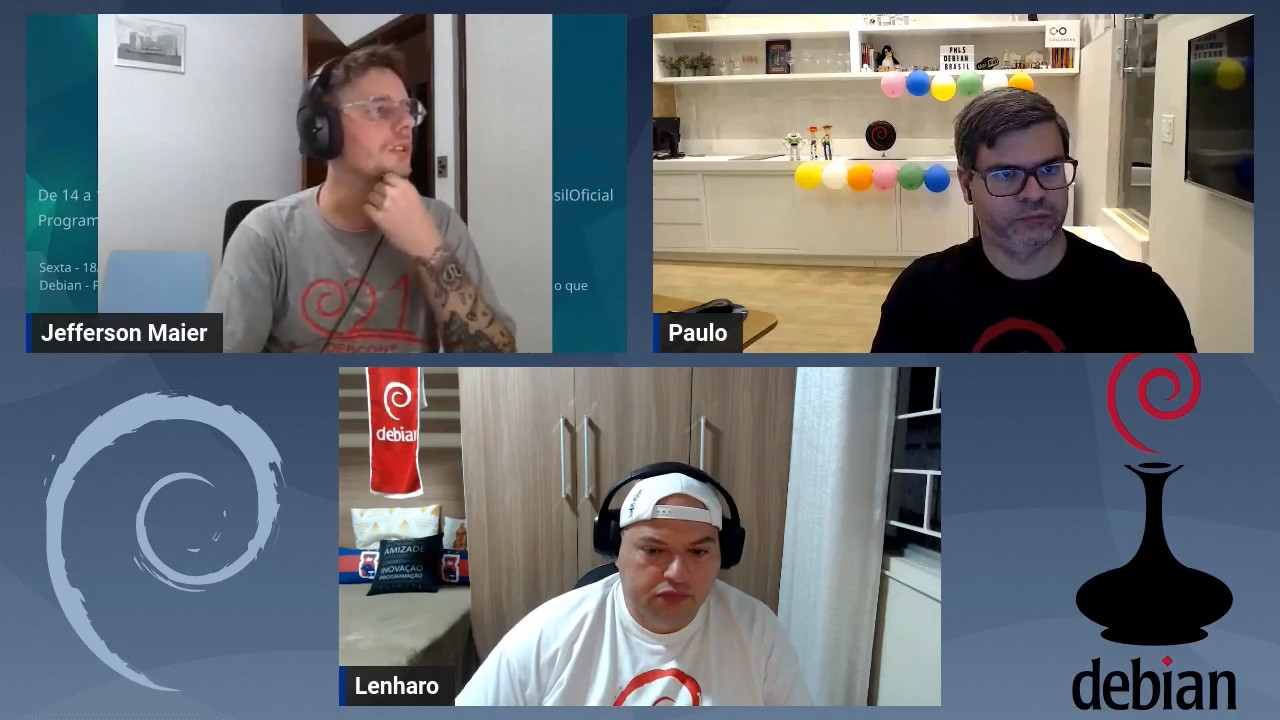
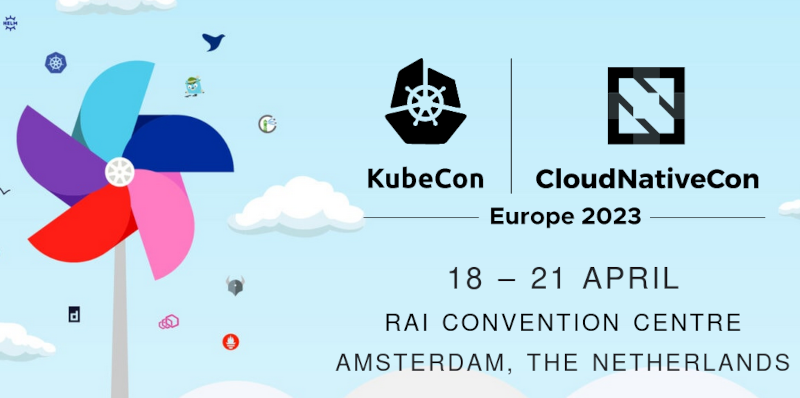 This post serves as a report from my attendance to Kubecon and CloudNativeCon 2023 Europe that took place in
Amsterdam in April 2023. It was my second time physically attending this conference, the first one was in
Austin, Texas (USA) in 2017. I also attended once in a virtual fashion.
The content here is mostly generated for the sake of my own recollection and learnings, and is written from
the notes I took during the event.
The very first session was the opening keynote, which reunited the whole crowd to bootstrap the event and
share the excitement about the days ahead. Some astonishing numbers were announced: there were more than
10.000 people attending, and apparently it could confidently be said that it was the largest open source
technology conference taking place in Europe in recent times.
It was also communicated that the next couple iteration of the event will be run in China in September 2023
and Paris in March 2024.
More numbers, the CNCF was hosting about 159 projects, involving 1300 maintainers and about 200.000
contributors. The cloud-native community is ever-increasing, and there seems to be a strong trend in the
industry for cloud-native technology adoption and all-things related to PaaS and IaaS.
The event program had different tracks, and in each one there was an interesting mix of low-level and higher
level talks for a variety of audience. On many occasions I found that reading the talk title alone was not
enough to know in advance if a talk was a 101 kind of thing or for experienced engineers. But unlike in
previous editions, I didn t have the feeling that the purpose of the conference was to try selling me
anything. Obviously, speakers would make sure to mention, or highlight in a subtle way, the involvement of a
given company in a given solution or piece of the ecosystem. But it was non-invasive and fair enough for me.
On a different note, I found the breakout rooms to be often small. I think there were only a couple of rooms
that could accommodate more than 500 people, which is a fairly small allowance for 10k attendees. I realized
with frustration that the more interesting talks were immediately fully booked, with people waiting in line
some 45 minutes before the session time. Because of this, I missed a few important sessions that I ll
hopefully watch online later.
Finally, on a more technical side, I ve learned many things, that instead of grouping by session I ll group
by topic, given how some subjects were mentioned in several talks.
On gitops and CI/CD pipelines
Most of the mentions went to
This post serves as a report from my attendance to Kubecon and CloudNativeCon 2023 Europe that took place in
Amsterdam in April 2023. It was my second time physically attending this conference, the first one was in
Austin, Texas (USA) in 2017. I also attended once in a virtual fashion.
The content here is mostly generated for the sake of my own recollection and learnings, and is written from
the notes I took during the event.
The very first session was the opening keynote, which reunited the whole crowd to bootstrap the event and
share the excitement about the days ahead. Some astonishing numbers were announced: there were more than
10.000 people attending, and apparently it could confidently be said that it was the largest open source
technology conference taking place in Europe in recent times.
It was also communicated that the next couple iteration of the event will be run in China in September 2023
and Paris in March 2024.
More numbers, the CNCF was hosting about 159 projects, involving 1300 maintainers and about 200.000
contributors. The cloud-native community is ever-increasing, and there seems to be a strong trend in the
industry for cloud-native technology adoption and all-things related to PaaS and IaaS.
The event program had different tracks, and in each one there was an interesting mix of low-level and higher
level talks for a variety of audience. On many occasions I found that reading the talk title alone was not
enough to know in advance if a talk was a 101 kind of thing or for experienced engineers. But unlike in
previous editions, I didn t have the feeling that the purpose of the conference was to try selling me
anything. Obviously, speakers would make sure to mention, or highlight in a subtle way, the involvement of a
given company in a given solution or piece of the ecosystem. But it was non-invasive and fair enough for me.
On a different note, I found the breakout rooms to be often small. I think there were only a couple of rooms
that could accommodate more than 500 people, which is a fairly small allowance for 10k attendees. I realized
with frustration that the more interesting talks were immediately fully booked, with people waiting in line
some 45 minutes before the session time. Because of this, I missed a few important sessions that I ll
hopefully watch online later.
Finally, on a more technical side, I ve learned many things, that instead of grouping by session I ll group
by topic, given how some subjects were mentioned in several talks.
On gitops and CI/CD pipelines
Most of the mentions went to 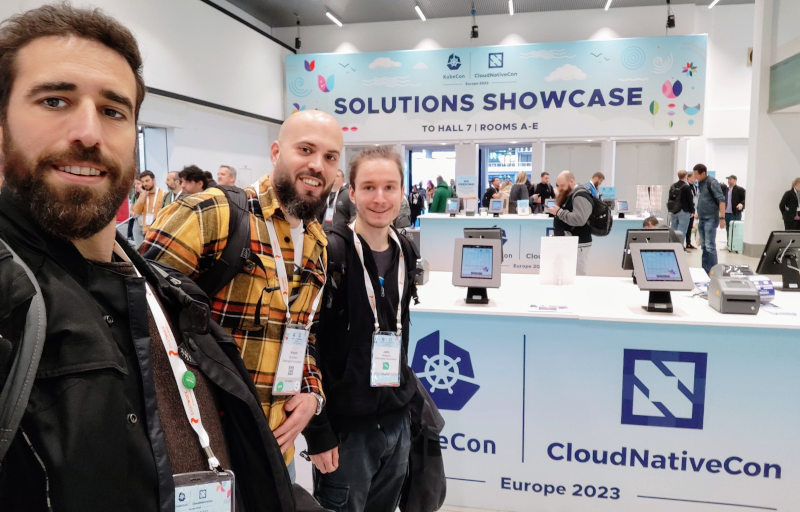 On etcd, performance and resource management
I attended a talk focused on etcd performance tuning that was very encouraging. They were basically talking
about the
On etcd, performance and resource management
I attended a talk focused on etcd performance tuning that was very encouraging. They were basically talking
about the 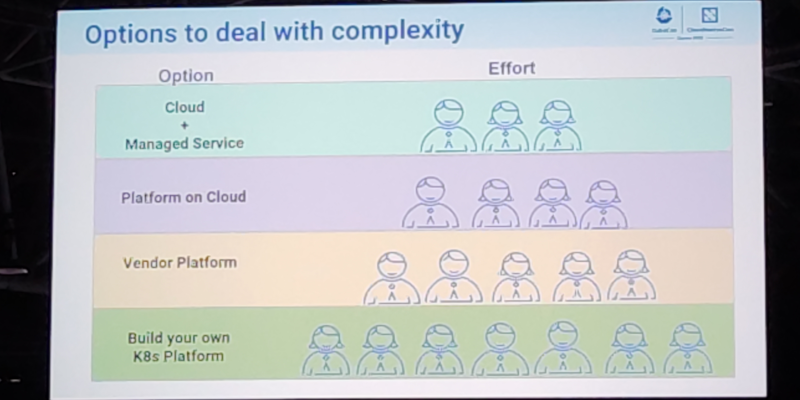 On jobs
I attended a couple of talks that were related to HPC/grid-like usages of Kubernetes. I was truly impressed
by some folks out there who were using Kubernetes Jobs on massive scales, such as to train machine learning
models and other fancy AI projects.
It is acknowledged in the community that the early implementation of things like Jobs and CronJobs had some
limitations that are now gone, or at least greatly improved. Some new functionalities have been added as
well. Indexed Jobs, for example, enables each Job to have a number (index) and process a chunk of a larger
batch of data based on that index. It would allow for full grid-like features like sequential (or again,
indexed) processing, coordination between Job and more graceful Job restarts. My first reaction was: Is that
something we would like to enable in
On jobs
I attended a couple of talks that were related to HPC/grid-like usages of Kubernetes. I was truly impressed
by some folks out there who were using Kubernetes Jobs on massive scales, such as to train machine learning
models and other fancy AI projects.
It is acknowledged in the community that the early implementation of things like Jobs and CronJobs had some
limitations that are now gone, or at least greatly improved. Some new functionalities have been added as
well. Indexed Jobs, for example, enables each Job to have a number (index) and process a chunk of a larger
batch of data based on that index. It would allow for full grid-like features like sequential (or again,
indexed) processing, coordination between Job and more graceful Job restarts. My first reaction was: Is that
something we would like to enable in